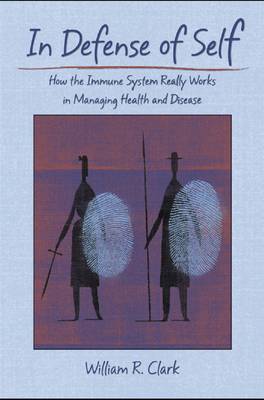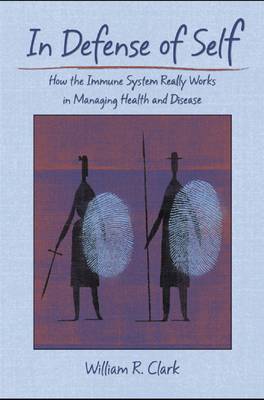
- Afhalen na 1 uur in een winkel met voorraad
- Gratis thuislevering in België vanaf € 30
- Ruim aanbod met 7 miljoen producten
- Afhalen na 1 uur in een winkel met voorraad
- Gratis thuislevering in België vanaf € 30
- Ruim aanbod met 7 miljoen producten
Zoeken
€ 193,45
+ 386 punten
Uitvoering
Omschrijving
We live in a sea of seething microbial predators, an infinity of invisible and invasive microorganisms capable of setting set up shop inside us and sending us to an early grave. The only thing keeping them out? The immune system. William Clark's In Defense of Self offers a refreshingly accessible tour of the immune system, putting in layman's terms essential information that has been for too long the exclusive province of trained specialists. Clark explains how the immune system works by using powerful genetic, chemical, and cellular weapons to protect us from the vast majority of disease-causing microbes-bacteria, viruses, molds, and parasites. Only those microbes our bodies need to help us digest food and process vitamins are admitted. But this same system can endanger us by rejecting potentially life-saving organ transplants, or by overreacting and turning too much force against foreign invaders, causing serious--occasionally lethal--collateral damage to our tissues and organs. Worse yet, our immune systems may react as if we ourselves are foreign and begin snipping away at otherwise healthy tissues, resulting in autoimmune disease. In Defense of Self covers everything from how antibodies work and the strategies the body uses to distinguish self from not self to the nature of immunological memory, the latest approaches to vaccination, and how the immune system will react should we ever be subjected to a bioterrorist attack. Clark also offers important insights on the vital role that the immune system plays in cancer, AIDS, autoimmunity, rheumatoid arthritis, allergies and asthma, and other diseases. Of special interest to all those suffering from diseases related to the immune system, as well as their families, In Defense of Self lucidly explains a system none of us could live without.
Specificaties
Betrokkenen
- Auteur(s):
- Uitgeverij:
Inhoud
- Aantal bladzijden:
- 280
- Taal:
- Engels
Eigenschappen
- Productcode (EAN):
- 9780195336634
- Verschijningsdatum:
- 4/02/2008
- Uitvoering:
- Hardcover
- Formaat:
- Genaaid
- Afmetingen:
- 152 mm x 215 mm
- Gewicht:
- 408 g

Alleen bij Standaard Boekhandel
+ 386 punten op je klantenkaart van Standaard Boekhandel
Beoordelingen
We publiceren alleen reviews die voldoen aan de voorwaarden voor reviews. Bekijk onze voorwaarden voor reviews.











